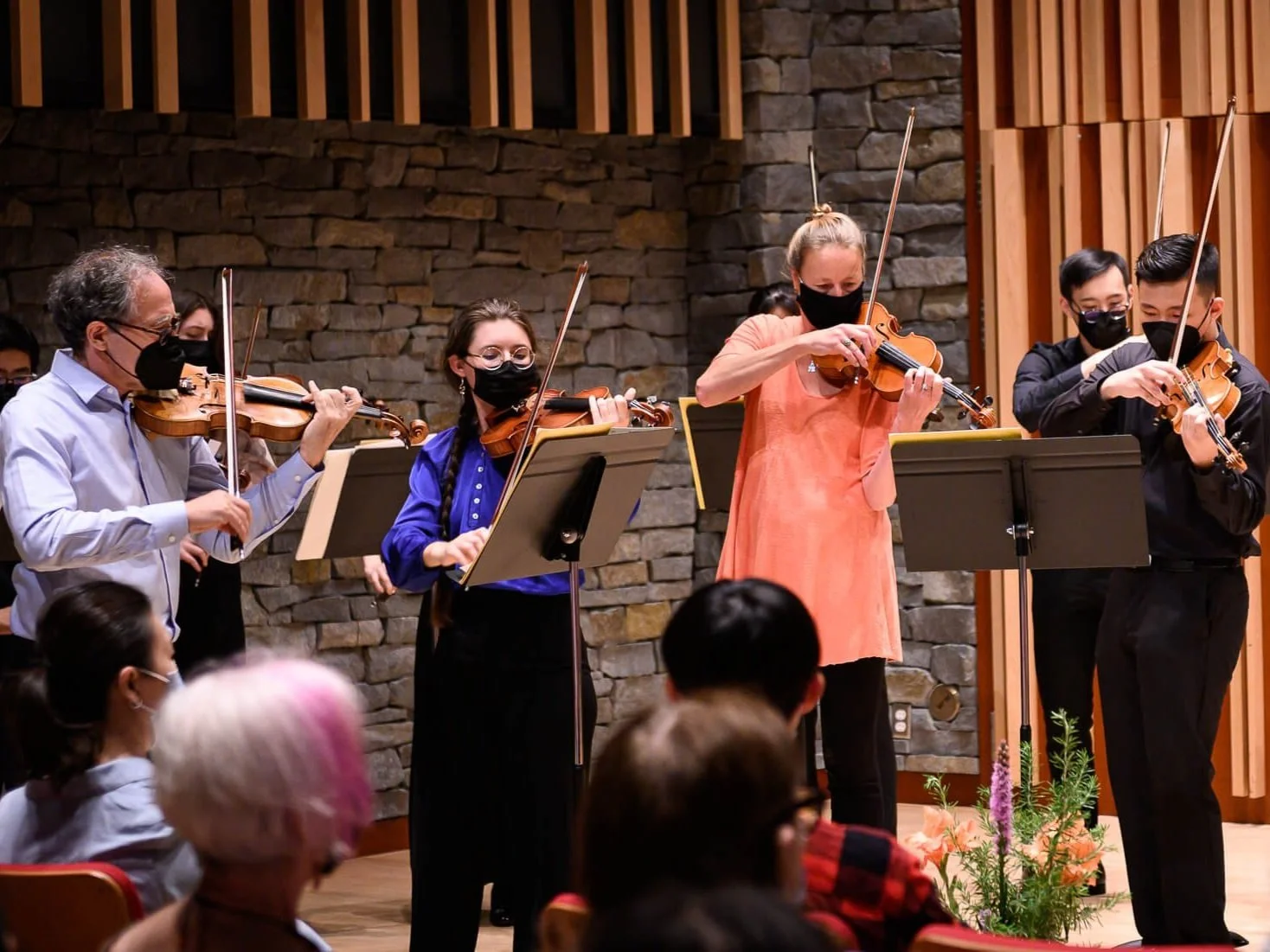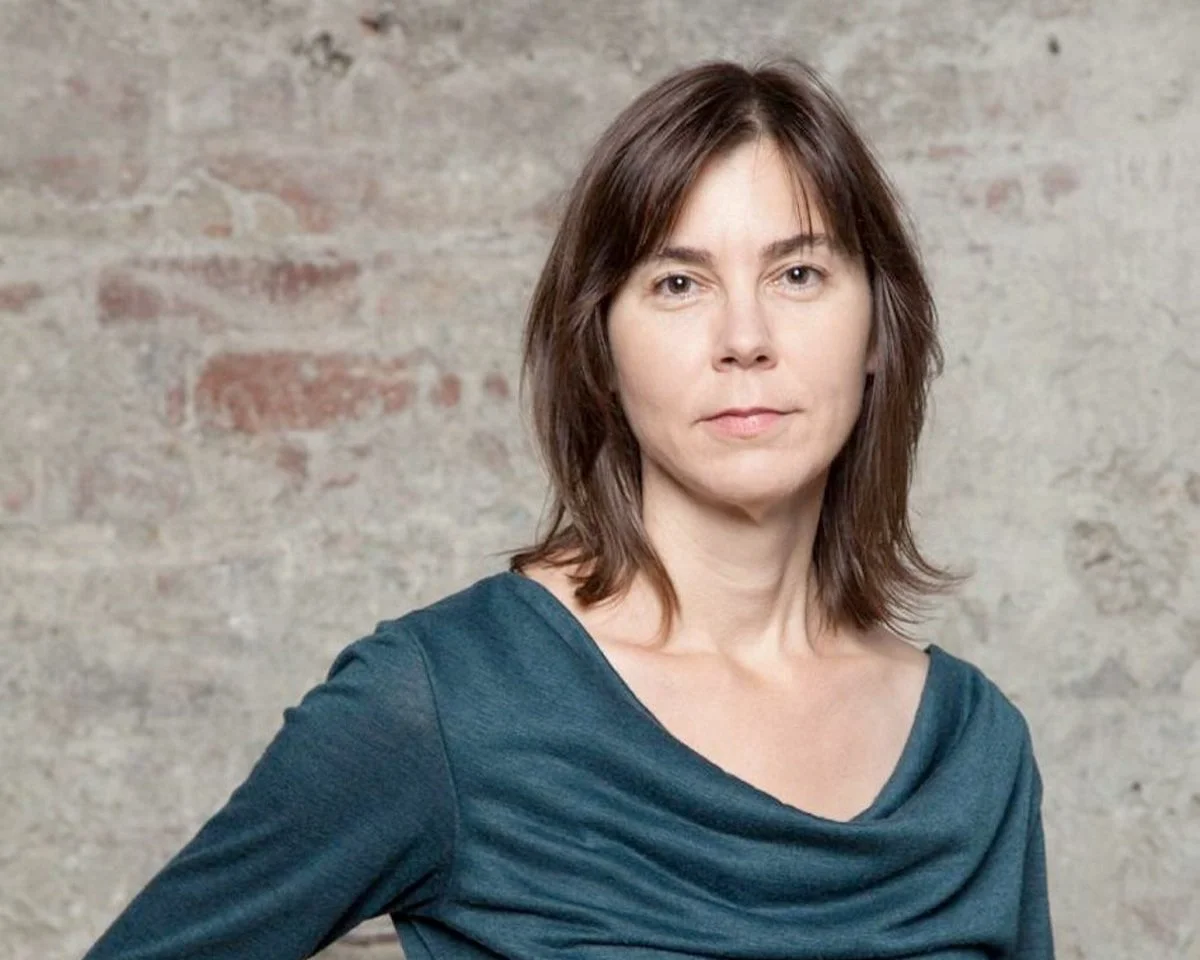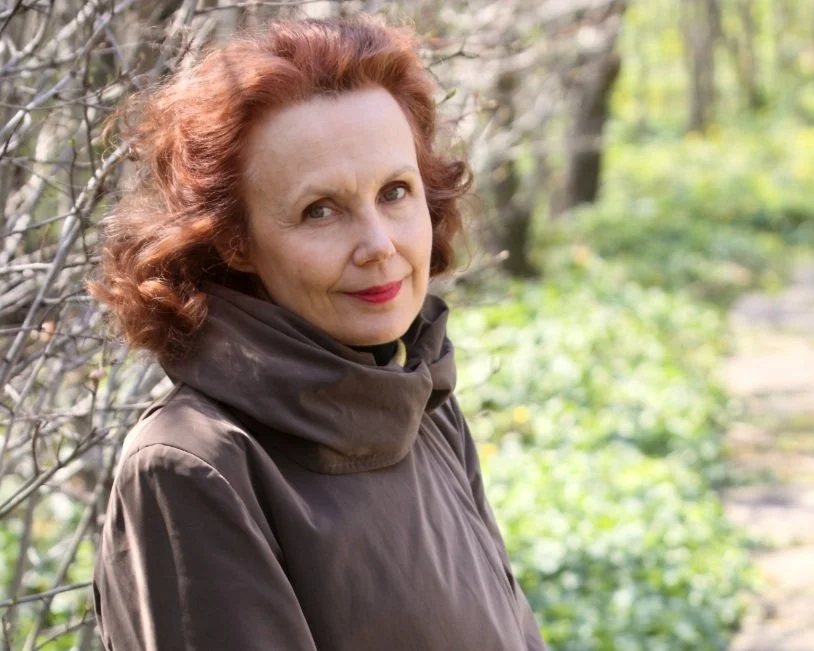Microcosmos Quartet honours female composers, late and living, at the Kessler Academy
Jocelyn Morlock’s Solace and Kaija Saariaho’s Terra Memoria share beautiful opening program of Music on Main’s annual summer intensive
Marc Destrubé working with Kessler Academy students. Photo by Jan Gates
Jocelyn Morlock
Kaija Saariaho. Photo by Andrew Campbell
Music on Main presents the Kessler Academy at the Annex on Sunday, August 20
COULD THERE BE a more appropriate way to open the Kessler Academy’s graduation concert than with the late Jocelyn Morlock’s beautiful score for string orchestra, Solace?
Probably not. With Canadian music still reeling from Morlock’s untimely death in March of this year, it seems fitting that she be commemorated in a concert led by her friend and occasional collaborator Marc Destrubé, especially as Solace contains a nod to their shared interest in early music. The two first met 20 years ago, when Destrubé commissioned Morlock to write a piece—the similarly gorgeous Golden, which appears on Morlock’s essential recording, Cobalt—for the Pacific Baroque Orchestra.
Solace, Destrubé says, “reflects on the role of ancient music in our lives, and how it can be comforting”, in part by quoting from the 16th-century French composer Josquin des Prez’s mass, L'Homme Armé. Morlock’s own 20th- and 21st-century compositions certainly serve the same function for those mourning her passing; as Destrubé points out, “We’re all struck by how much she affected people in a very personal way. There was something about both her as a personality and her music that went straight to the heart. People instinctively felt an attachment to her, and to her music.”
With circumstances dictating the program opener, Destrubé and his colleagues in the Microcosmos Quartet realized that another way to celebrate their late friend would be to devote this year’s recital, in which their ensemble will be joined by approximately 16 student musicians, to the work of female composers. Fate, regrettably, made this choice even more timely.
“Of course Kaija Saariaho’s name came up as one of the really great composers of this century, and the day that I submitted the program to Music on Main, June 2, her death was announced,” the violinist explains. “So it’s a very nice way of honouring both of their music. And, as it happens, her piece Terra Memoria and Jocelyn’s are very much the same piece, in that they’re kind of memorial pieces that are honouring people that have departed, or the past.”
There’s no need to worry that the Kessler Academy’s 2023 concert, which takes place at the Annex this weekend, will be a funereal affair, however. It’s a serious program, with Kelly-Marie Murphy’s pandemic-inspired In the Time of Our Disbelieving and Grażyna Bacewicz’s knotty Divertimento conveying various degrees of disquiet and angst, but then there’s also Jessie Montgomery’s Strum, an upbeat, even joyous work that celebrates unconventional playing techniques even as it draws on folkloric rhythms.
Offering a variety of technical challenges as well as emotional complexity, the five works on the bill reflect the Kessler Academy’s mandate of complementing the lessons its students, who this year range from 14 to 34, have already learned in other, more formal settings.
“The initial thrust of the Academy, and what we’ve aimed for along the way, is I suppose largely to fill in the gaps in most young people’s music education,” Destrubé says., “I think that nowadays—and perhaps it’s always been that way—music education is very much driven by jumping through the hoops of auditions, getting into a degree program, getting into a university… whatever it is. And so it’s a pretty narrow repertoire of, in the case of string players, a standard concerto—Mozart or Haydn or Brahms. People can get through several degree hoops and diploma hoops and not have played much music of our own time, or anywhere close to it—what we still call ‘modern music’, even if some of that is 100 years old. Part of the thrust was to fill in that gap, so we focus on music from the last 100 years, more or less—and this year, we’re focusing on the last 25 years, with one exception.
“The other focus,” he adds, “is to work without a conductor, which has implications in terms of everybody taking a lot more responsibility for their own function, especially rhythmically. Which is something that they don’t tend to encounter in music school.”
The outcome, Destrubé hopes, is to encourage a kind of alternative virtuosity—a virtuosity of listening and patience that will add resonance and depth to the technical accomplishments developed through more orthodox forms of training. Couple that to a remarkably well-conceived program and an admirable dedication to the new, and the Kessler Academy’s 2023 concert should be a must-hear summer event.
















